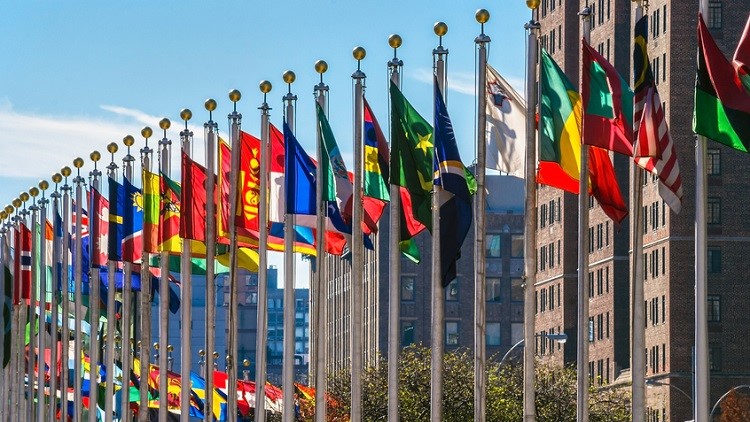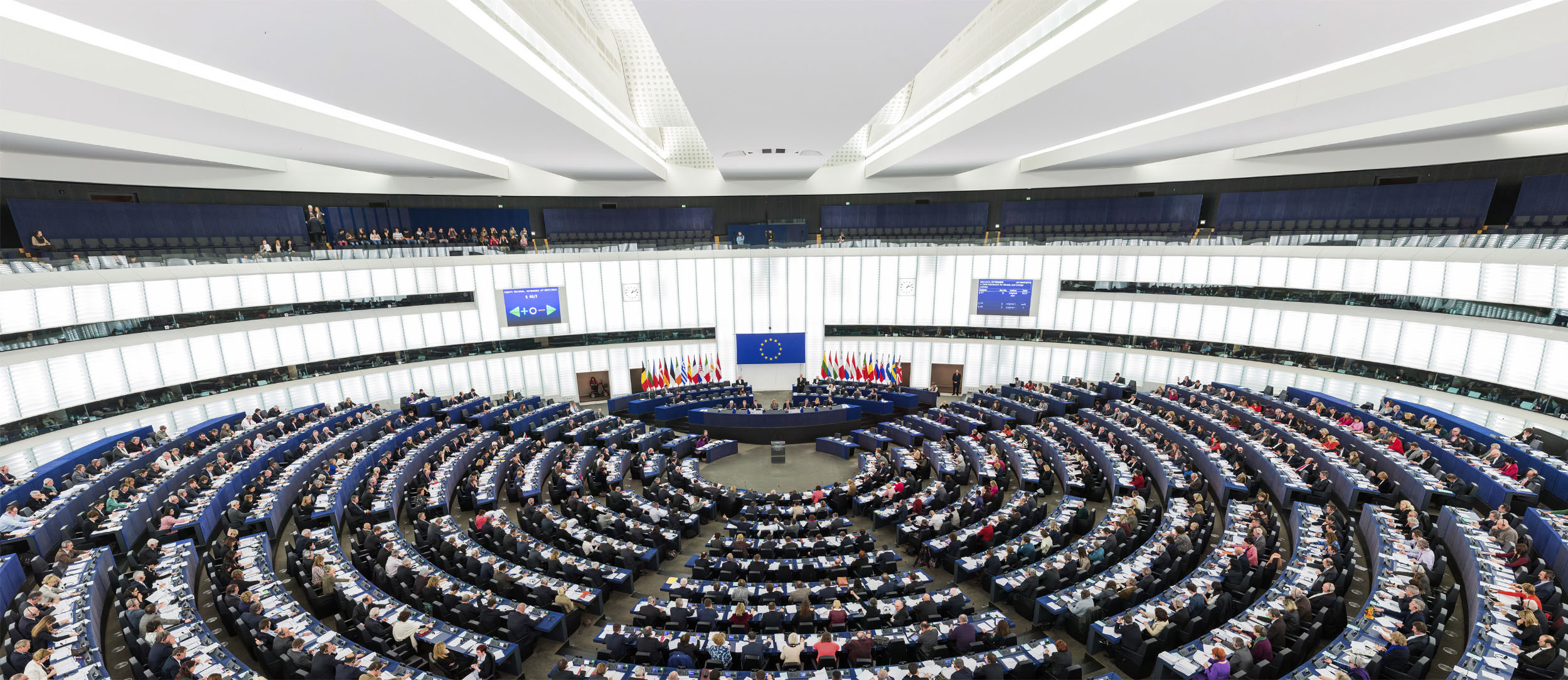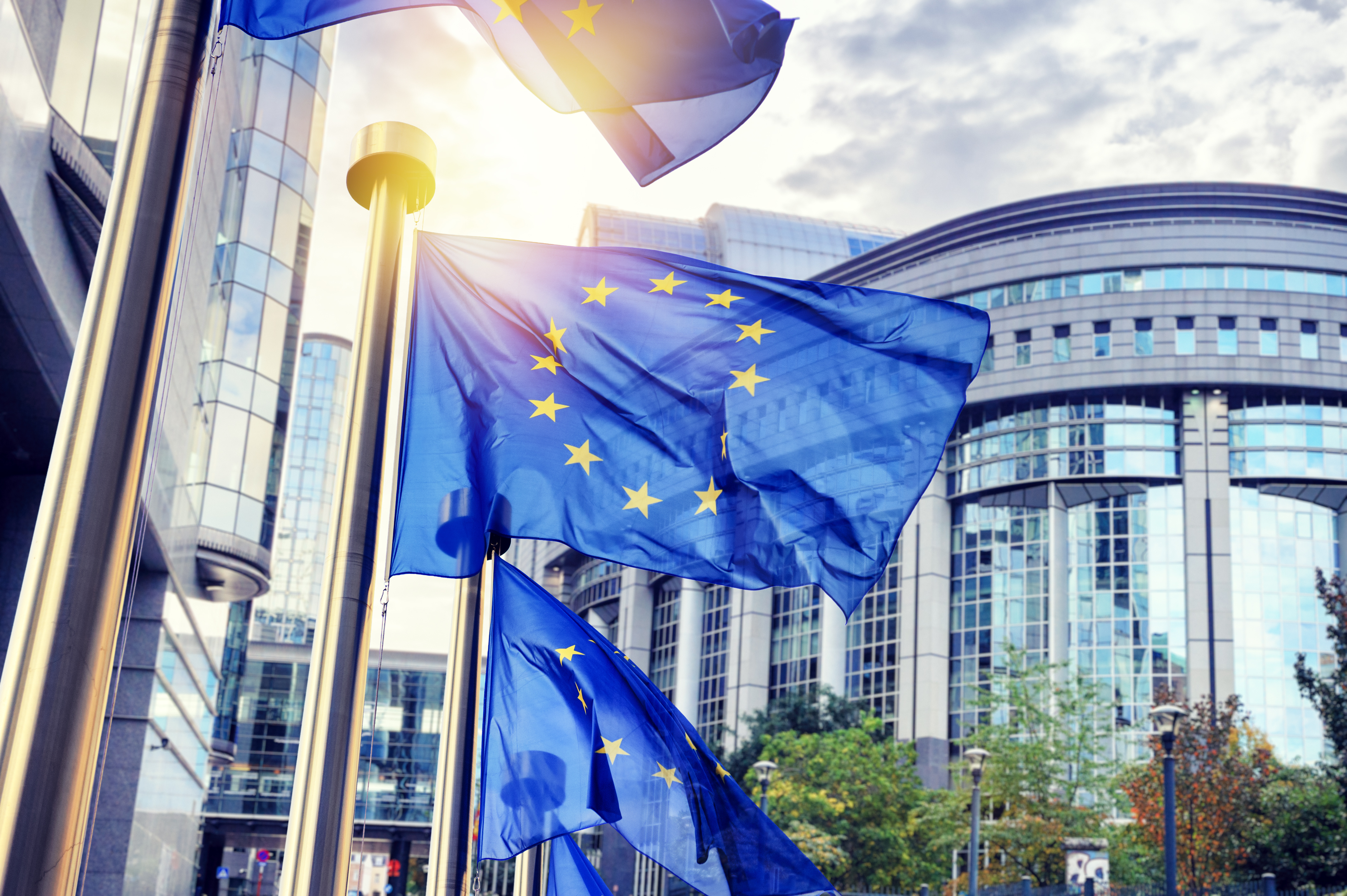Research clusters
Europe and the Crisis of Rule-Based Global Order. Head: Dr. Anna Herranz Surralles
The research in this cluster falls along three broad lines: (i) EU rule promotion and contestation in the European neighbourhood; (ii) diplomacy, bureaucracy and culture in EU foreign policy; and (iii) the EU and the future of global rules and multilateralism.
EU rule promotion and contestation in the European neighbourhood: Research focuses on EU policies toward the EU’s closer and wider neighbourhood (Middle East and North Africa, the Eastern Partnership (EaP), Central Asia), including democracy promotion, trade, finance, energy, migration as well as security and defense. Research also explores the ‘internal-external’ nexus in the EU’s policies as well as the domestic and external contestation of EU rules in the neighbourhood.
Diplomacy, bureaucracy and culture in EU foreign policy: Research focuses on values-interest intersections in EU foreign policy, ethics of European foreign policy and the role of strategic and diplomatic culture(s) in EU foreign policy. Other themes comprise the legitimacy, transparency and (democratic) accountability of EU foreign, security and defence policy, and the role of bureaucrats, experts, lobby groups and other non-state actors in EU foreign policy-making.
The EU and the future of global rules and multilateralism: Research focuses on the EU, international organisations and challenges to the liberal global order. The main themes include the EU’s role in international security, peace-building and conflict management, and the EU and international rules and regimes inter alia in trade, finance, development, energy, environment, health and migration. Research addresses EU relations with the world (e.g. Africa, Americas, Asia), multilateralism and comparative regionalism as well as the history of rule-based global order and the (contested) authority of regional and international organisations. A focus is also placed on examining Europe and global regulation of innovations related to digitalisation and automation, including privacy regulations, cyber security and the governance of autonomous weapons systems.
Key publications:
- Dandashly, A., & Noutcheva, G. (Eds.) (2022). Conceptualizing norm diffusion and norm contestation in the European neighbourhood: introduction to the special issue. Democratization, 29(3), 415-432. https://doi.org/10.1080/13510347.2021.2012161
- Debre, M., & Dijkstra, H. (2021). Institutional design for a post-liberal order: why some international organizations live longer than others. European Journal of International Relations, 27(1), 311-339. https://doi.org/10.1177/1354066120962183
- Herranz-Surralles, A. (2021). Settling it on the multi-level parliamentary field? A fields approach to interparliamentary cooperation in foreign and security policy. West European Politics, 45(2), 262-285. https://doi.org/10.1080/01402382.2020.1858609
- Schöfer, T., & Weinhardt, C. (2022). Developing-country status at the WTO: the divergent strategies of Brazil, India and China. International Affairs, 98(6), 1937-1957. https://doi.org/10.1093/ia/iiac227
- Segers, M. (2019). Eclipsing Atlantis: Trans‐Atlantic Multilateralism in Trade and Monetary Affairs as a Pre‐History to the Genesis of Social Market Europe (1942–1950). Journal of Common Market Studies, 57(1), 60-76. https://doi.org/10.1111/jcms.12818
- Verhaegen, S., Scholte, J. A., & Tallberg, J. (2021). Explaining elite perceptions of legitimacy in global governance. European Journal of International Relations, 27(2), 622-650. https://doi.org/10.1177/1354066121994320

Democracy in Europe: Past and Present. Head: Dr. Aline Sierp
Democracy never has a single meaning, but is always in flux, both as a concept and as a social and political reality. This research cluster takes as its point of departure the ever changing nature of understandings and practices of democracy. It brings together historians, political scientists, and philosophers who pool their expertise to shed light on the evolution, the dynamics, the institutional forms, and the contested nature of democracy across time and space. In doing so, scholars in this group explore democracy from regional, national, transnational and supranational perspectives. While the focus is on democracy on the European continent writ large (both within and beyond the territorial confines of the present-day EU), scholars in this cluster are also interested in global transfers, circulations, and exchanges, including both the influence of European conceptions of democracy in other parts of the world as well as the impact of global dynamics and understandings of democracy on Europe. In taking this approach, members of this group work on:
- The changing meanings of democracy and the impact of historically moulded forms of democracy on the practice of democracy in Europe today;
- Contestations of democracy, including the history and present of anti-democratic regimes and movements, as well as the origins and impact of populism and challenges to the legitimacy of democratic systems;
- Issues of democratic legitimacy within the European Union system of governance, Euro-scepticism, the alleged democratic deficit, the impact of expertise and technocracy on the form and function of democracy, and the role of national and supranational legislatures in shaping the practice of democracy in Europe;
- The problems of democracy promotion both in Europe and across the globe;
The research also has an applied dimension as we are trying to find ways of improving current institutional expressions and practices of democracy, including e.g. the nature and possibilities of deliberative democracy.
Key publications
- Bijsmans, P., Galpin, C., & Leruth, B. (2018). 'Brexit' in transnational perspective: An analysis of newspapers in France, Germany and the Netherlands. Comparative European Politics, 16(5), 825-842. https://doi.org/10.1057/s41295-017-0104-z
- De Bruycker, I. (2020). Democratically deficient, yet responsive? How politicization facilitates responsiveness in the European Union. Journal of European Public Policy, 27(6), 834-852. https://doi.org/10.1080/13501763.2019.1622587
- Del Hierro, P. (2021). The End of the Affair: The International Dispute over the Deportation of Degrelle from Spain to Belgium, 1945-1946. The International History Review, 43(4), 761-780. https://doi.org/10.1080/07075332.2020.1845777
- Van Leeuwen, K. (2018). Paving the road to ‘legal revolution’: The Dutch origins of the first preliminary references in European law (1957–1963). European Law Journal, 24(6), 408-421. https://doi.org/10.1111/eulj.12296
- Parkinson, J., & Bächtiger, A. (2019). Mapping and measuring deliberation: Towards a new deliberative quality. Oxford University Press. https://doi.org/10.1093/oso/9780199672196.001.0001
- Sierp, A., & Karner, C. (Eds.). (2019). Dividing United Europe: From Crisis to Fragmentation? Routledge/Taylor & Francis Group. https://www.routledge.com/Dividing-United-Europe-From-Crisis-to-Fragmentation-1st-Edition/Sierp-Karner/p/book/9780367002558

Political attitudes and behaviour in Europe. Head: Dr. Soetkin Verhaegen
Political attitudes and behaviour in Europe is an interdisciplinary research cluster that brings together research on societal actors in Europe, including individual citizens and nonstate actors. The research cluster focuses on topics such as political attitudes, political behaviour, representation, responsiveness, policy preferences, legitimacy, citizenship, and emotions in politics. These issues are studied on the regional, national, European, as well as the global level.
Next to its substantive focus, which is approached with a plethora of methods, this cluster explicitly also offers a platform to discuss the application of quantitative research methods. Members of the cluster are specialized in survey research, survey experiments, computational methods, and quantitative data analysis more broadly.
Members of this cluster work on issues such as:
- political participation, (monitoring) elections, European Parliament elections
- affective polarization, negative partisanship, political psychology
- social capital/cohesion, political/societal trust
- political communication, misinformation/disinformation
- interest groups, lobbying
- multilevel governance, international regime complexity, financial governance
Key publications:
- Dellmuth, L., Scholte, J. A., Tallberg, J., & Verhaegen, S. (2021). The elite-citizen gap in international organization legitimacy. American Political Science Review, 1-18. https://doi.org/10.1017/S0003055421000824
- De Bruycker, I. (2019). Blessing or curse for advocacy? How news media attention helps advocacy groups to achieve their policy goals. Political Communication, (36)1, 103-126. https://doi.org/10.1080/10584609.2018.149300
- Dupuy, C., Verhaegen, S., & Van Ingelgom, V. (2020). Support for Regionalization in Federal Belgium: The Role of Political Socialization. Publius: The Journal of Federalism, 1-25. https://doi.org/10.1093/publius/pjaa019
- Palacios, I., & Arnold, C. (2021). Do Spitzenkandidaten debates matter? Effects on voters' cognitions and evaluations of candidates and issues. Politics, 41(4), 486-503. https://doi.org/10.1177/02633957211015231
- Peters, F. W. C., Schmeets, H., & Vink, M. (2020). Naturalisation and immigrant earnings: why and to whom citizenship matters. European Journal of Population-Revue Europeenne de Demographie, 36(3), 511-545. https://doi.org/10.1007/s10680-019-09540-1
| Members |
|---|
| Christine Arnold |
| Giselle Bosse |
| Thomas Conzelmann |
| Assem Dandashly |
| Iskander de Bruycker |
| Michele Fenzl |
| Nico Randeraad |
| Luana Russo |
| Eli Sapir |
| Aneta Spendzharova |
| Soetkin Verhaegen |


